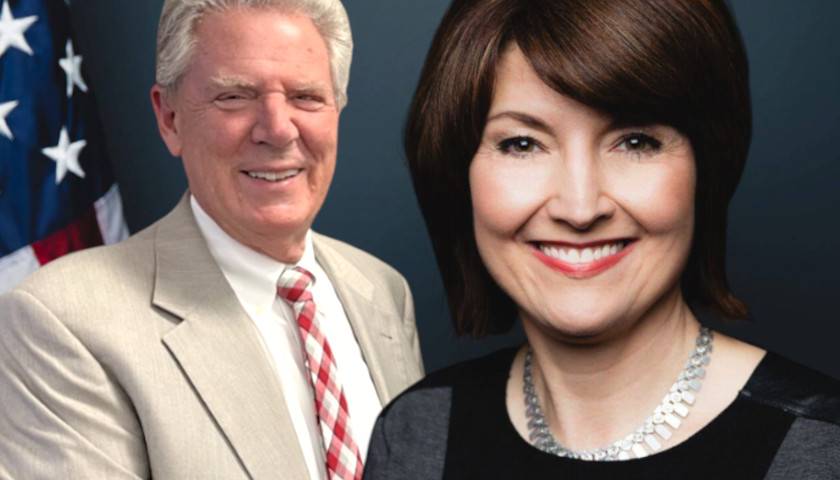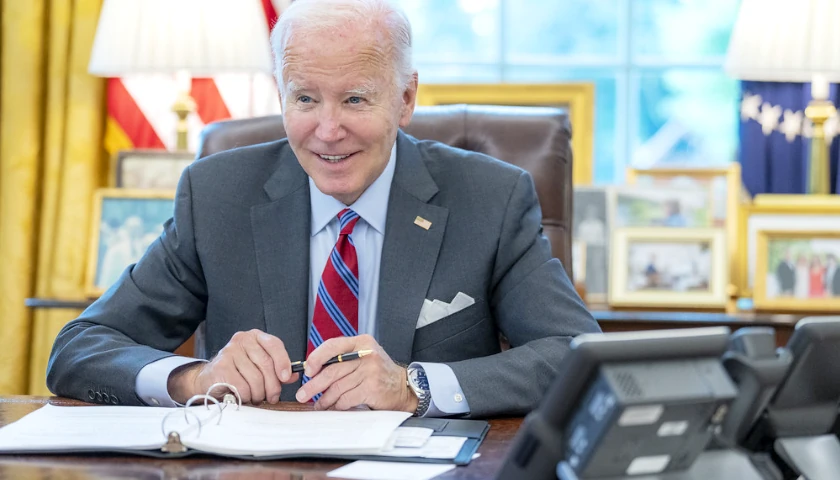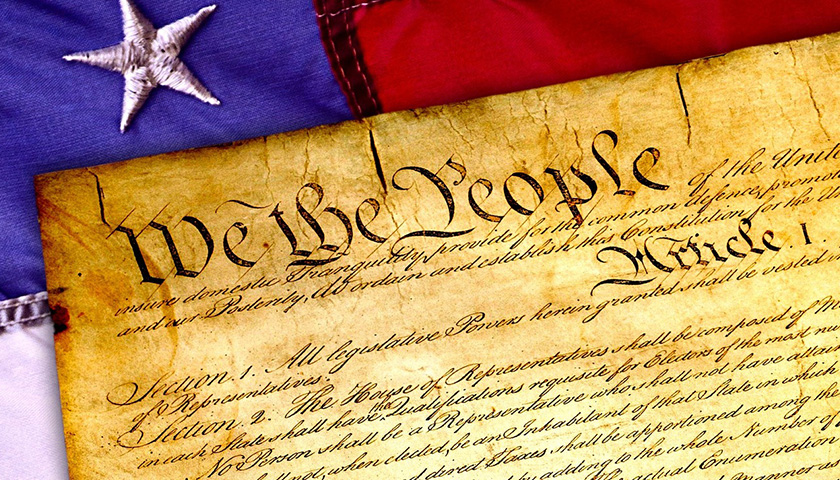by Robert Romano
“It would require Big Tech and others to work with Congress over 18 months to evaluate and enact a new legal framework that will allow for free speech and innovation while also encouraging these companies to be good stewards of their platforms. Our bill gives Big Tech a choice: Work with Congress to ensure the internet is a safe, healthy place for good, or lose Section 230 protections entirely.”
That was House Energy and Commerce Committee Chair Cathy McMorris Rodgers (R-Wash.) and Ranking Member Frank Pallone, Jr. (D-N.J.) in a May 12 oped in the Wall Street Journal outlining their proposed draft legislation, the “Section 230 Sunset Act,” that would end Section 230 of the Communications Decency Act protections on Dec. 31, 2025 for millions of interactive computer services, including websites, e-commerce stores and other small businesses.
The legislation simply states, “This section shall have no force or effect after December 31, 2025.” No alternative is presented.
Instead, per McMorris-Rodgers and Pallone’s oped, “Big Tech [has] a choice: Work with Congress to ensure the internet is a safe, healthy place for good, or lose Section 230 protections entirely.”
In other words, it’s “Nice internet you have there, shame if anything were to happen to it.”
By sunsetting Section 230, it naturally holds out the prospect for its renewal — for the right price. In the meantime, millions of websites, e-commerce stores and other interactive computer services are to be held potentially liable for the actions of their user networks if Big Tech does not or cannot pay the toll. That would break the internet.
Section 230 applies to interactive computer services which are defined as “any information service, system, or access software provider that provides or enables computer access by multiple users to a computer server, including specifically a service or system that provides access to the Internet and such systems operated or services offered by libraries or educational institutions…”
Here’s the problem: Repealing or even sunsetting Section 230 impacts every website and application in America with user databases with the ability to log in, post content and products and/or make purchases, which number in the millions, and it also impacts every user on those websites, which number in the hundreds of millions.
Have customers on your e-commerce store? Post products on eBay or Indiegogo or Amazon? Or maybe users simply enjoy posting on X.com, Facebook or Truth Social, or making videos on YouTube or Rumble? Or perhaps you are politically active on old bulletin board style sites like Free Republic or Democratic Underground, or simply like posting in the comments sections on news sites?
The fact is, whether you are just a user, a small business or a Big Tech social media or e-commerce firm, you and everything you do on the internet will be impacted negatively by the additional regulations planned by Congress, and there will be even more censorship than we are already seeing, if this bipartisan legislation passes, which considering the bipartisan draft already in place, has already been agreed to behind closed doors by at least a few leaders in both parties.
In the meantime, as Congress turns up pressure on Big Tech social media and other platforms to make them “safe” for children, those platforms will increasingly attempt to crack down in a bid to fend off further regulation, resulting in false positive strikes occurring via the algorithms, exacerbating the digital cancel culture that has been running rampant for years against anyone who dares to speak out against the current political establishment.
The core protections of websites and other applications in question — which protect free speech on the internet — were enacted by Congress in 1996, including Section 230 of the Communications Decency Act.
47 U.S.C. Section 230(c)(1) forms part the internet’s liability shield, stating, “No provider or user of an interactive computer service shall be treated as the publisher or speaker of any information provided by another information content provider.”
Subsections (c)(2)(a) and (c)(2)(b) form the other part of that protection, stating, “No provider or user of an interactive computer service shall be held liable on account of any action voluntarily taken in good faith to restrict access to or availability of material that the provider or user considers to be obscene, lewd, lascivious, filthy, excessively violent, harassing, or otherwise objectionable, whether or not such material is constitutionally protected any action taken to enable or make available to information content providers or others the technical means to restrict access to material described…”
These simultaneously grant a broad liability exemption for websites and other interactive computer services from whatever users happen to post on their websites, and grants the companies power to remove items at their discretion they find objectionable. The delicate balance this creates shields websites and other applications from lawsuits, allows for user networks to exist and otherwise protects the First Amendment rights of those websites by giving them the final say over what goes on their platforms.
In sum, Section 230 means the interactive computer services you use every day cannot be sued for what the users are doing on those networks. If the liability shield is removed, that won’t mean less censorship, it will mean platforms will not be able to afford to host your content because it could be a massive liability.
Not even Elon Musk, one of the richest men in the world, might still be able to afford to host X.com.
Again, the bill sunsets Section 230 protections Dec. 31, 2025. The idea is to hold the entire internet, millions of websites with users, hostage every year to force whatever new concessions Congress wants from Big Tech. That’s the extortion. Millions of websites taken hostage to exact a toll from a few. That’s insane.
This creates an emergency situation by sunsetting current protections for all websites whereby a few Big Tech firms are forced to the table to negotiate on behalf of the entire internet. Whatever concessions the Big Tech firms agree to will then be applied to the entire internet, and if that creates new competitive barriers for entry into digital markets and increases costs or results in unacceptable further censorship, too bad.
Congress might even choose to make the Section 230 sunsets periodic so that the extortion can continue and be repeated for years on end, with Congress acting as the thumb-breaker.
These are the same members of Congress who unanimously passed the Cybersecurity and Infrastructure Security Agency bill to censor websites and platforms in 2018 without any deliberation, and more recently overwhelming passed legislation forcing divestiture of any website or application “determined by the President to present a significant threat to the national security of the United States” under the guise of the TikTok ban in the recent emergency foreign aid supplemental.
That is who will decide what the post-Section 230 world will look like. The fact is, internet freedom has never been greater jeopardy. And you had better start paying attention — before it’s too late.
– – –
Robert Romano is the Vice President of Public Policy at Americans for Limited Government.
Photo “Cathy McMorris Rodgers” by Congresswoman Cathy McMorris Rodgers and “Frank Pallone Jr.” by Frank Pallone Jr.



